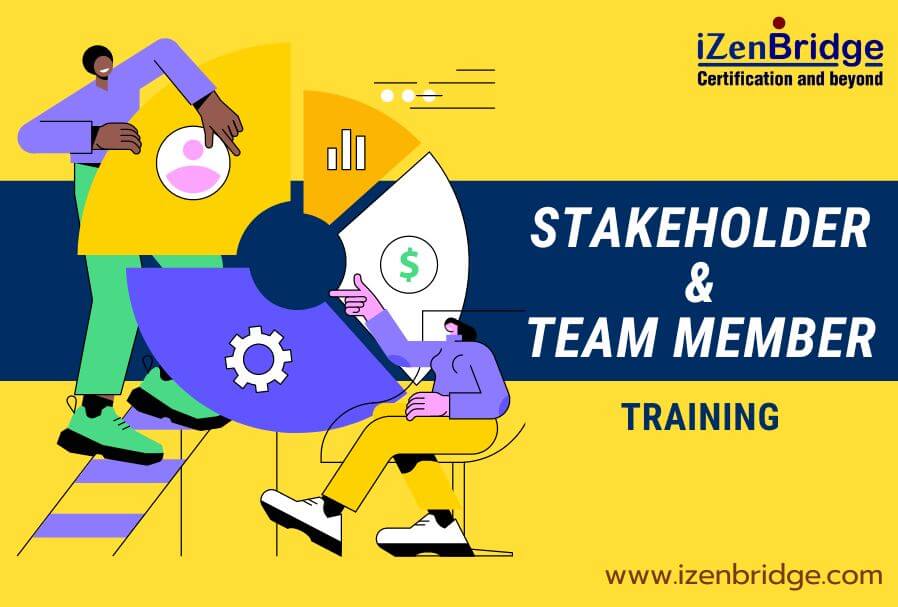In an era marked by rapid technological advances and shifting global dynamics, the role of project management has transitioned from merely overseeing tasks to fostering the holistic growth of team members. The spotlight has shifted towards nurturing human resources, as exemplified by the new PMP Exam content, emphasizing the importance of training and development.
The Essence of Task 5 in the People Domain
Task 5, succinctly titled “Ensure team members/stakeholders are adequately trained”, is not merely an obligation but serves as a cornerstone in the project management realm. Delving into its depth reveals four fundamental pillars:
- Competence Assurance: Ensuring team members have the skills to execute their roles.
- Diverse Training Avenues: Actively seeking varied and relevant training methodologies.
- Resourceful Training Allocation: Utilizing resources efficiently for maximum training efficacy.
- Outcome Assessment: Evaluating the effectiveness of training sessions.
The Evolving Perspective of Project Management
Traditionally, the project management arena revolved around task allocation, work breakdown, and ensuring execution. However, in a world characterized by VUCA (Volatile, Uncertain, Complex, Ambiguous) attributes, a new narrative emerges:
- Dynamic Skill Requisites: Continuous assessments and training are essential to address the ever-changing skill needs.
- Project-Specific Training: The onus lies with project managers to facilitate tailored training sessions, moving beyond the traditional HR domain.
- Power Skills: Emphasis on soft skills, like emotional intelligence and effective communication, is equally paramount as technical prowess.
- Timely Skill Acquisition: It’s not about what skills are acquired, but when. This ensures relevance and applicability.
Project Management: An Ecosystem of Training
- Stakeholder Analysis : A continuous process that evolves with the project’s progression, ensuring alignment with stakeholder expectations and needs.
- Periodic Team Assessment : Whether Agile or Predictive, feedback mechanisms are vital. Tools like retrospectives and one-on-one sessions provide valuable insights.
- Current Work Assessment: Recognizing competency gaps and initiating timely training interventions.
- Future Work Forecasting: Anticipating upcoming challenges and ensuring team preparedness.
- Knowledge Transfer: Averting the risk of a ‘single point of failure’ by fostering a collective understanding.
- Enabling Change: Equipping stakeholders with the necessary skills to utilize deliverables effectively.
Deciphering the Optimal Training Methodology
Identifying training needs is a precursor to the more challenging task: choosing the right training approach. Factors influencing this decision range from the subject’s complexity to the audience’s size. Here, we dissect various training avenues:
- Self-Paced Learning: Suited for less complex subjects, with quizzes ensuring knowledge retention.
- Live Interaction: Essential for intricate subjects requiring in-depth understanding.
- Simulations & Case Studies: Enhances practical application understanding.
- On-Job Training with Mentoring: Provides real-time feedback and hands-on experience.
Resource Allocation: Balancing Cost and Quality
Strategically allocating resources for training is quintessential for project success. Achieving a synergy between training, project schedules, and resources ensures optimal outcomes. The key considerations are the team’s time, infrastructure costs, and striking the balance between cost-effectiveness and quality.
Measuring the Training Ripple Effect
Beyond training, lies the realm of mentoring and coaching, ensuring the transition from mere knowledge acquisition to tangible results. The feedback mechanism is essential, and tools range from post-training assessments and certifications to skill observation. The complexity of the skill determines the length and depth of this journey.
In conclusion, the role of a project manager transcends traditional boundaries, evolving into a guardian of holistic team development. Ensuring apt training and skill development is not a mere task; it’s a responsibility, a commitment towards achieving project excellence. If you are preparing for PMP Exam, consider enrolling on our Live PMP Sessions to speed up your PMP Preparation.

